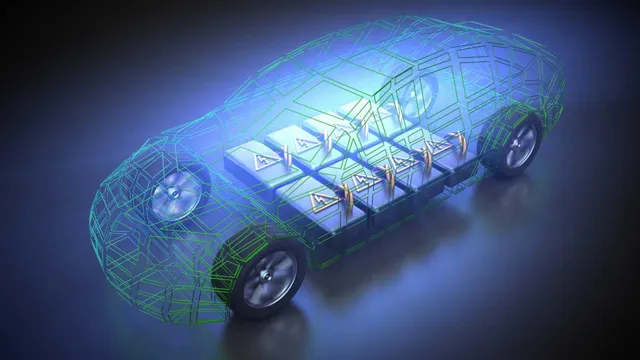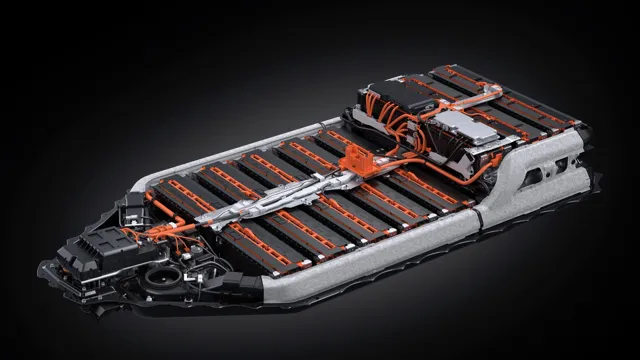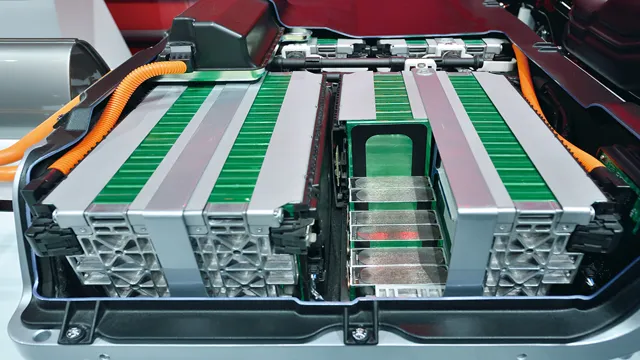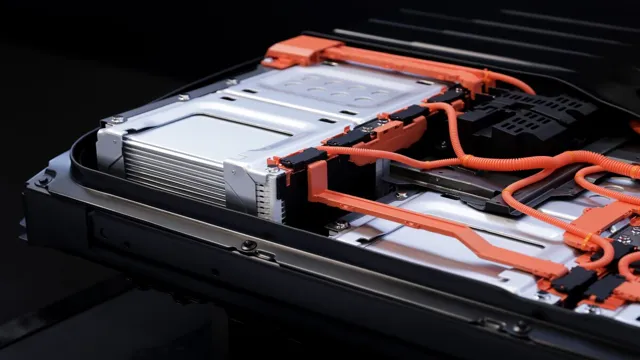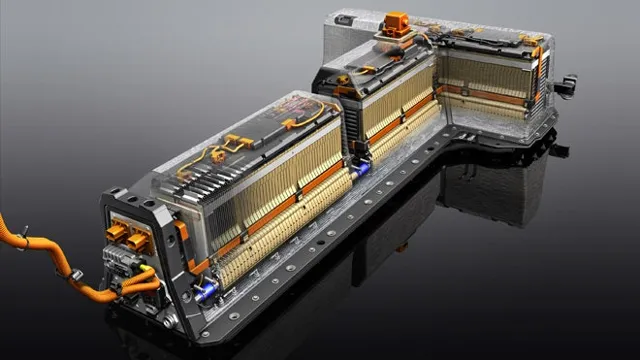Decoding the Economics of Disposal Cost for Electric Car Batteries: What You Need to Know!
As the world shifts towards greener and more sustainable solutions, electric cars have become increasingly popular. These cars are a promising step towards reducing our carbon footprint and creating a cleaner environment. However, just like any other type of vehicle, electric cars have a lifespan, and when it’s time to dispose of them, one important factor to consider is the cost of the battery disposal.
Electric car batteries contain hazardous materials that can harm the environment if not disposed of properly. As such, disposing of them requires specialized techniques and procedures. Unfortunately, this comes at a cost, which differs depending on various factors.
In this blog post, we will delve into the topic of electric car battery disposal cost. We will discuss the typical methods used to dispose of electric car batteries and the associated costs. Additionally, we will discuss the various factors that influence the price of battery disposal, such as the type, size, and age of the battery, and the recycling process used.
By the end of this post, you’ll have a better understanding of electric car battery disposal costs and what you should consider when disposing of your electric vehicle’s battery.
Overview
Disposing of electric car batteries is a growing concern for both manufacturers and owners. The cost of disposal can vary depending on a number of factors such as the size of the battery and the materials used. Lithium-ion batteries, which are the most commonly used in electric cars, are not cheap to dispose of properly.
Some estimates suggest that disposing of a single electric vehicle battery could cost upwards of $1,000. This is due to the hazardous nature of the materials involved and the specialized techniques needed for safe transportation and disposal. As the popularity of electric cars continues to grow, manufacturers are increasingly looking for ways to make the battery disposal process more cost-effective and environmentally friendly.
Nevertheless, it is important for owners to be aware of the costs and proper disposal methods for their electric car batteries in order to avoid any negative impact on the environment and potential fines or legal consequences.
What is the average cost to dispose of an electric car battery?
When it comes to disposing of an electric car battery, the cost can vary depending on a few different factors. First of all, it’s important to consider whether or not the battery is still usable. If it is, it may be possible to sell or donate it to someone who could use it for another purpose.
However, if the battery is no longer functional, it will need to be properly disposed of to avoid any harmful environmental impact. In these cases, the cost can range from around $200 to $1000 or more depending on the size and type of battery, as well as where you live and the specific regulations in your area. It’s important to note that properly disposing of an electric car battery is crucial not only for the environment but also for safety reasons.
That’s why it’s essential to do your research and find a qualified professional who can handle the disposal process safely and effectively.
Factors that impact disposal cost
When it comes to managing waste, the cost of disposal can vary greatly depending on several factors. These factors range from the type of waste being disposed of to the location and regulations of the disposal site. For businesses and individuals alike, understanding these factors can help to reduce waste disposal costs.
One important factor is the type of waste being disposed of. Hazardous materials, for example, are typically more expensive to dispose of due to the need for special handling and transportation. Another factor is the distance to the disposal site, as this can affect transportation costs and may require permits or other fees.
Additionally, regulations and taxes imposed by local and federal governments can also impact the cost of disposal. By taking these factors into consideration, waste generators can choose the most cost-effective method of disposal that meets their needs and minimizes their impact on the environment.
Current Market Trends
One of the obstacles faced by electric vehicle owners is the disposal cost for electric car battery. Since electric car batteries are made up of rare metals and materials, they are more expensive to dispose of than traditional car batteries. The high cost of proper disposal can make owning an electric car less attractive.
However, as the demand for electric vehicles continues to rise, the need to address this issue will become more pressing. Some car manufacturers are already working on recycling programs to reduce the disposal cost and environmental impact of electric car batteries. As the technology and infrastructure around electric vehicles continues to advance, we can expect to see more innovative solutions to this problem in the future.
Until then, it’s important for car owners to do their research and factor in the cost of disposing of their electric car battery when considering their overall vehicle expenses.
How much does recycling an EV battery cost?
When it comes to recycling electric vehicle (EV) batteries, the cost can vary depending on a variety of factors. Current market trends show that there is a growing demand for recycled materials, including those found in EV batteries. This means that recycling centers are more incentivized than ever to recover valuable metals like cobalt, nickel, and lithium.
However, the cost of recycling an EV battery also depends on the condition of the battery itself and the recycling process used. Some methods may be more cost-effective but less environmentally friendly, while others may be more sustainable but pricier. As the popularity of EVs continues to rise, the need for effective and affordable recycling methods for their batteries will become increasingly important.
Are disposal fees rising or falling?
Disposal fees have been a significant concern for both individuals and companies that generate waste products. The disposal fees are determined by factors such as the type of waste, location, and hauling distance. However, in recent years, the disposal fees have been steadily increasing due to various factors such as increased regulatory compliance costs and decreasing landfill space.
The COVID-19 pandemic has further compounded the issue, leading to some companies increasing their disposal fees to meet their financial needs. It’s essential to keep track of the current market trends to understand the factors affecting the disposal fee prices. However, companies can mitigate this problem by implementing proper waste management practices, such as recycling, composting or using waste-to-energy technologies that can reduce the volume of waste generated, resulting in fewer disposal fees.
Is it cheaper to repair or replace a battery?
In today’s current market trends, it can be difficult to determine whether it’s cheaper to repair or replace a battery. With the increasing innovation in battery technology, it’s becoming more common for batteries to not be able to be repaired and must be replaced entirely. However, depending on the age and condition of the battery, repair may still be a viable option.
It’s important to weigh the costs of repairing versus replacing, taking into consideration factors such as the cost of a new battery, the cost of labor for repair, and the impact on the environment. Additionally, it’s worth considering the lifespan of a new battery versus a repaired battery, as a new battery may offer longer-lasting performance. Ultimately, the decision to repair or replace a battery will depend on individual circumstances, but by carefully considering all factors, it’s possible to make an informed decision that saves both money and resources.
Sustainable Disposal Options
When it comes to the disposal cost for electric car batteries, there are sustainable options available. Many automakers and battery manufacturers have implemented take-back programs where they collect used batteries, recycle and repurpose them. Recycling the materials used in the batteries can significantly reduce the environmental impact of vehicle production.
In addition to this, there are emerging technologies being developed that can further increase the sustainability of electric car batteries. For instance, researchers are working on developing solid-state batteries that do not contain the same toxic materials as traditional lithium-ion batteries and have higher energy density. While there may be a cost involved in the disposal of electric car batteries, the long-term benefits of minimizing environmental impact and promoting sustainability through responsible waste management justify the investment.
What are the most eco-friendly disposal methods?
When it comes to sustainable disposal options, there are a few ways to reduce waste and lower our impact on the environment. One of the most effective ways is to recycle. By recycling materials like paper, plastic, glass, and metal, we can conserve natural resources and reduce the amount of waste that goes into landfills.
Another option is composting. Composting is a natural process that turns organic waste into nutrient-rich material that can be used to fertilize plants. It’s a great way to reduce food waste and create a more sustainable food system.
If recycling or composting isn’t an option, then choosing biodegradable materials or products made from sustainable materials can be a good alternative. For example, using bamboo or cotton swabs instead of plastic ones can help reduce waste while also being better for the environment. By choosing sustainable disposal options, we can make a positive impact on the planet and create a more eco-friendly future for ourselves and future generations.
Are there any government incentives for green disposal practices?
When it comes to sustainable disposal options, you may be wondering if there are any government incentives to encourage businesses to adopt green practices. The answer is yes, there are several incentives offered by various government agencies. Depending on the type of business and the kind of waste they generate, some incentives may be more applicable than others.
For example, the Environmental Protection Agency offers a Sustainable Materials Management Program that provides resources and funding to businesses that are committed to reducing waste and diverting materials from landfills. Additionally, some state and local governments offer tax credits or rebates for businesses that invest in sustainability initiatives. These incentives not only benefit the environment by encouraging responsible waste management practices, but they can also save businesses money in the long run.
So, if you’re looking for ways to reduce your waste and your carbon footprint, be sure to check with your local government to see what incentives are available to you.
Final Thoughts
In conclusion, electric cars are becoming increasingly popular due to their many benefits, but it’s important to consider the disposal cost for their batteries. While electric vehicles are more environmentally friendly than gas-powered cars, their batteries contain hazardous materials that require proper disposal, which can come at a high cost. However, the industry is continuously working on developing more sustainable and cost-effective solutions for battery disposal.
It’s crucial to factor in this cost when purchasing an electric car and plan accordingly for the end of its battery life to minimize any negative impact on the environment and your wallet.
Conclusion
In conclusion, the disposal cost for electric car batteries may seem daunting at first glance, but it’s ultimately a small price to pay for the larger environmental and economic benefits of electric vehicles. Plus, with advancements in battery recycling and reuse, we may soon find alternative solutions to minimizing disposal costs. So, let’s not throw the towel in just yet and instead, charge ahead towards a sustainable future on our electric wheels!”
FAQs
What is the average disposal cost for an electric car battery?
The average disposal cost for an electric car battery is around $200 to $300.
Can electric car batteries be recycled?
Yes, electric car batteries can be recycled. They contain valuable metals like nickel, cobalt, and lithium that can be extracted and reused.
What happens to electric car batteries when they are not disposed of properly?
If electric car batteries are not disposed of properly, they can pollute the environment by releasing toxic chemicals and heavy metals.
How can I properly dispose of my electric car battery?
You can contact your local recycling center or electric car manufacturer to properly dispose of your electric car battery. Some manufacturers even offer a recycling program for their batteries.
